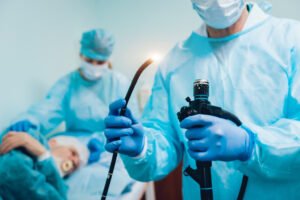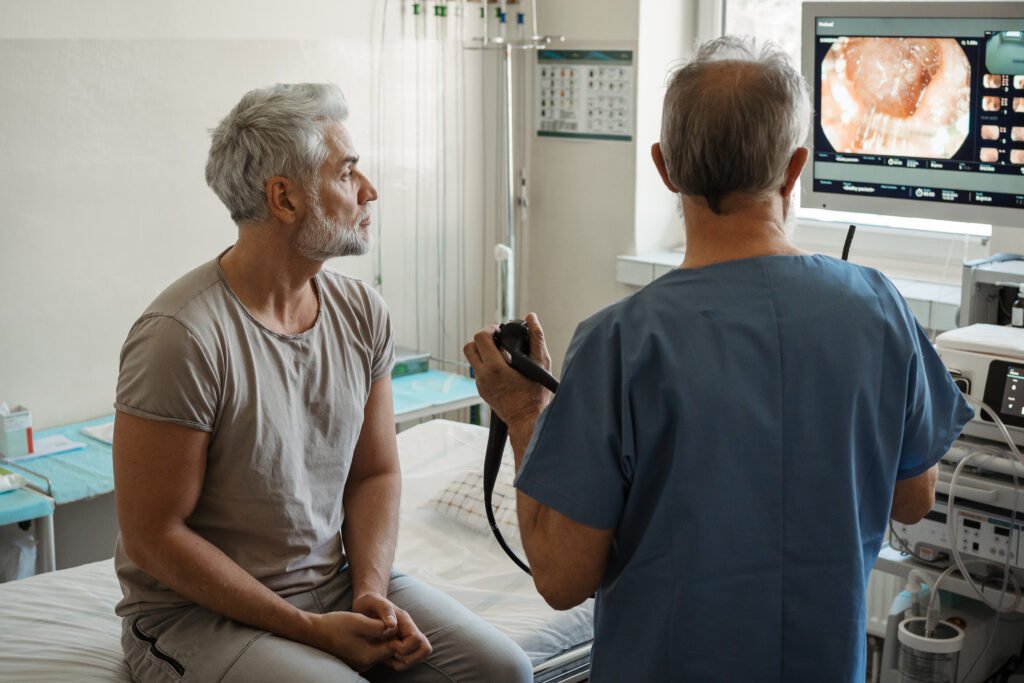Like many others, you might have heard about colonoscopies from a doctor or health brochure. You may have also been told that it’s routine and essential. That’s all true. But what others don’t tell you is how awkward and exhausting the procedure can be, especially if it’s your first time.
Getting a colonoscopy isn’t as scary as you think. When you truly understand what it entails, it’s pretty uneventful. However, there are some details no one warns you about, and they’re the parts that cause unnecessary dread. So, here’s what to expect before your colonoscopy procedure.
Preparation Is Tougher Than the Procedure
If you can find anyone to talk to who’s had a colonoscopy before, ask them about their experience. Most might say the actual procedure was peaceful and went by quickly as if they’d just taken a nap. It’s the preparation that takes more out of you.
Colonoscopy prep starts with a special diet a day or two before. Your doctor will advise you to eat certain foods, like soups or pasta, and avoid others, like red meat and raw vegetables. On the day before, you must only consume liquids, which can be difficult when you’re hungry.
Then comes the laxative. Cleansing your small and large intestines isn’t the prettiest sight. Expect to go to the toilet over and over again for hours. Be prepared to set up camp in your bathroom and bring something to get your mind off things.
It’s a tough process, but it’s all for a seamless screening test. Colonoscopy Singapore clinics or facilities near you provide require you to follow a strict prep plan for better results. A cleaner colon allows your doctor to check and remove colon polyps easily. Reputable doctors and your adherence to preparation also make the process more comfortable for you.
You Might Not Sleep the Night Before
Like many medical procedures, getting enough sleep the night before can be hard. You might continue your bathroom breaks even in the middle of the night. Alarms could help you out here. Or, you could forgo sleeping and stay on the toilet, though this isn’t the wisest idea.
Anxiety could also keep you up. Getting a colonoscopy, while safe, is generally unsettling to most people. The possibility of discovering conditions like Crohn’s disease or even colon cancer would make you feel distressed, too.
If you’re easily anxious, consider taking the day before the procedure off. Having a day to rest and relax can ward away negative thoughts. While preparing your colon is crucial, you must also prepare your mental state.
Hunger and Dehydration Can Make You Feel Terrible
Your doctor will tell you to stick to clear liquids the day before your colonoscopy. Drinks may include apple juice, broth, and tea. When you combine that with hours of bowel cleansing, you’re going to feel like a wrung-out sponge.
Some people might get dizzy, while others get sluggish or cranky. These experiences are normal. The human body is running on a limited supply and craving more filling meals.
Drink as much water as possible to curb hunger and dehydration. Electrolyte sports drinks could help replenish lost minerals like potassium, chloride, sodium, and magnesium. Just avoid drinking anything red or purple, as the colors can tamper with the camera’s visibility during the procedure.
There’s Nothing to Be Embarrassed About

It’s okay to feel scared or embarrassed at first. Getting a colonoscopy involves exposing yourself to strangers who happen to be medical professionals. But remember, the doctors and staff don’t care what your bottom looks like. They’ve seen all kinds from their previous patients. So, to them, you’re just another patient on schedule they need to help.
On the day of your colonoscopy screening test, you’ll wear a surgical gown. This outfit is for your comfort and for the doctors to access your rectum easily. Before anything happens, you’ll be sedated. You’re done with the whole process by the time you wake up.
If you’re lucky, you may undergo a virtual colonoscopy, which is a non-invasive version of the same procedure. Doctors use a CT scan to take cross-sectional images of your belly organs. Then, they piece them together to create a complete internal view of your colon and rectum.
Sedation Works Fast and Wears Off Weirdly
Once an anesthesiologist administers IV sedation to you, you’ll begin to feel warm, almost floating. Before you know it, you’ve fallen unconscious. In this state, you won’t even feel the tube with the camera enter you. When you gain consciousness again, you likely have no recollection of the procedure.
Different people react differently after waking up from anesthesia. You could start laughing for no reason or cry or blurt out nonsense. Don’t worry about that. The doctors are used to it and will help you settle until you get your bearings back.
Even if you feel fine right away, you’re not allowed to drive or go home alone. You must have someone pick you up, walk you to the car, and keep an eye on you at home for a few hours.
Post-Procedure Bloating Is Possible
During your colonoscopy, doctors pump air into your colon to get a better view inside. The air won’t disappear immediately. You may still feel it afterward in the form of bloating, pressure, and gassiness.
Frequently passing gas is a typical occurrence after getting a colonoscopy. It’s the body’s way of getting itself back to normal. It might be uncomfortable, but it’s temporary. Walking inside your home for a bit can help move the air faster.
Bowel Movements Might Be Odd for a Few Days
Besides passing gas more than usual, you’ll also be experiencing inconsistent bowel movements. Your colon just went through a significant cleanse and is stabilizing itself.
Don’t expect your digestion to bounce back right away. Some patients don’t have bowel movements for a day or more, and others may have looser stools. Your gut needs time to settle down.
If you’re having digestion troubles, lend it a hand during this period. Add bananas, rice, or toast to your diet. Fiber-rich food helps push the stool out, but refrain from overeating. Your stomach will tell you what it’s ready for and can’t handle.
Final Thoughts
Getting a colonoscopy is vital to check your colon and prevent conditions like ulcerative colitis. But it’s also a procedure that many people feel worried about.
This doesn’t have to be the case. When you understand what really goes on before the procedure and why it’s done, you’ll appreciate the efforts toward better health. And the more you know about colonoscopies, the easier it is to manage them.



